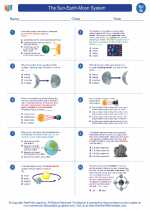Pituitary Gland
The pituitary gland, also known as the master gland, is a small pea-sized gland located at the base of the brain, just below the hypothalamus. It is an essential part of the endocrine system and plays a crucial role in regulating various bodily functions by secreting hormones.
Anatomy of the Pituitary Gland
The pituitary gland is divided into two main parts: the anterior pituitary (adenohypophysis) and the posterior pituitary (neurohypophysis). The anterior pituitary is made up of glandular tissue and produces and releases several important hormones, while the posterior pituitary mainly stores and releases hormones produced by the hypothalamus.
Functions of the Pituitary Gland
The pituitary gland controls the functions of other endocrine glands and regulates various physiological processes, including growth, metabolism, reproduction, and stress response. Some of the key hormones produced by the pituitary gland include:
- Human Growth Hormone (HGH): Regulates growth, metabolism, and body composition.
- Thyroid-Stimulating Hormone (TSH): Stimulates the thyroid gland to produce thyroid hormones that regulate metabolism.
- Adrenocorticotropic Hormone (ACTH): Stimulates the adrenal glands to produce cortisol, which helps the body respond to stress.
- Prolactin: Stimulates milk production in the mammary glands of breastfeeding women.
- Luteinizing Hormone (LH) and Follicle-Stimulating Hormone (FSH): Regulate the reproductive system and sex hormone production.
- Oxytocin and Vasopressin: Stored and released by the posterior pituitary, these hormones regulate water balance, blood pressure, and uterine contractions during childbirth.
Disorders of the Pituitary Gland
Disorders of the pituitary gland can lead to hormonal imbalances and various health problems. Some common pituitary disorders include:
- Acromegaly: Excessive production of growth hormone in adults, leading to abnormal growth of bones and tissues.
- Hyperprolactinemia: Overproduction of prolactin, which can cause infertility, irregular menstrual cycles, and milk production in non-pregnant individuals.
- Hypopituitarism: Insufficient production of pituitary hormones, leading to symptoms such as fatigue, weight loss, and decreased libido.
- Diabetes Insipidus: A disorder of the posterior pituitary that causes excessive thirst and excretion of large volumes of dilute urine.
Study Guide
To study the pituitary gland effectively, consider the following key points:
- Understand the anatomy of the pituitary gland, including its divisions and the hormones produced by each part.
- Learn the functions of the pituitary hormones and their roles in regulating physiological processes.
- Identify and understand the disorders associated with the pituitary gland, including their causes and symptoms.
- Explore the interactions between the pituitary gland and other endocrine glands in the body.
- Review case studies and clinical scenarios related to pituitary gland disorders to apply your knowledge in real-life situations.
By mastering these aspects of the pituitary gland, you will gain a comprehensive understanding of its role in the endocrine system and its significance in maintaining overall health and well-being.
.◂Science Worksheets and Study Guides Seventh Grade. The Sun-Earth-Moon System

 Worksheet/Answer key
Worksheet/Answer key
 Worksheet/Answer key
Worksheet/Answer key
 Worksheet/Answer key
Worksheet/Answer key
 Worksheet/Answer key
Worksheet/Answer key
 Vocabulary/Answer key
Vocabulary/Answer key
 Vocabulary/Answer key
Vocabulary/Answer key
 Vocabulary/Answer key
Vocabulary/Answer key
 Vocabulary/Answer key
Vocabulary/Answer key
 Vocabulary/Answer key
Vocabulary/Answer key
